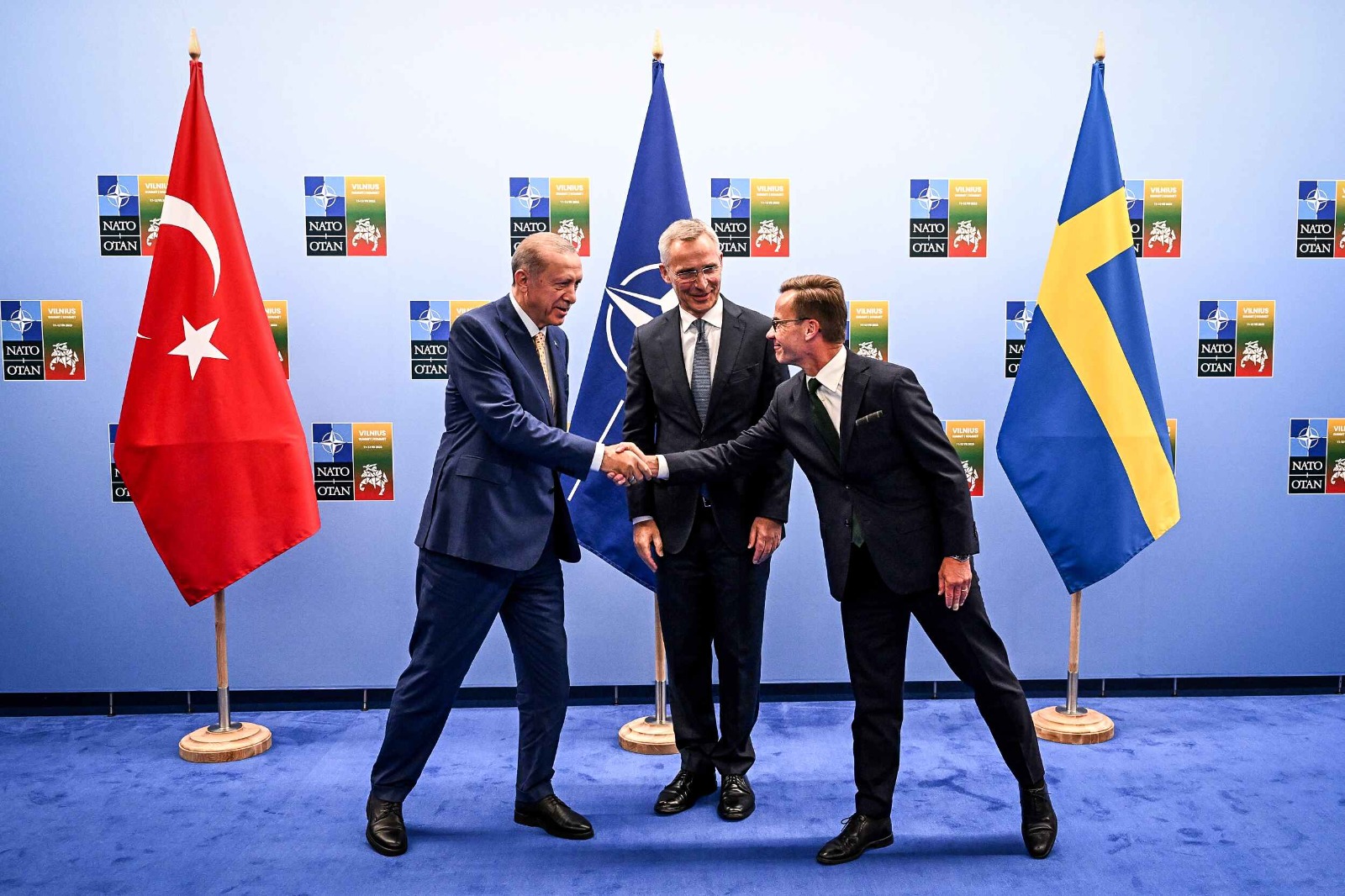Turkey has decided to postpone ratifying Sweden’s NATO membership bid as it awaits signs of support from the United States for its own request to buy F-16 fighter jets. This decision has the potential to disappoint NATO allies who have been eager to end the 17-month-long delay in Sweden’s membership approval.
Turkey Seeks US Support for F-16 Jets Purchase
During the NATO summit in July, President Tayyip Erdogan had seemingly given the green light for Sweden’s NATO bid, but since Turkey’s parliament reopened in October, the foreign affairs commission has not yet discussed Sweden’s application. Turkish officials are now seeking to synchronize their actions with the United States. Specifically, Ankara is waiting for Washington to take steps to secure a $20 billion deal for F-16 fighters and modernization kits, a move that will help build trust between the two nations.
According to a member of Erdogan’s ruling AK Party, “Given the lack of trust over the issue of F-16s and Sweden, Turkey is not rushing to ratify the NATO bid and looking for a sign that the United States is taking steps at the same time.” The proposal, which suggests that both sides should take simultaneous actions regarding the NATO bid and the F-16 purchase, has been delayed.
While Erdogan’s office has not provided a clear timeframe for Sweden’s ratification, it is evident that Turkey is in no hurry to proceed, especially after recent incidents. This strategic move comes after a bomb attack in Ankara on the day parliament reconvened, followed by the downing of a Turkish drone by the United States near U.S. troops in northern Syria.
Stalled Sweden’s NATO Bid Causes Diplomatic Tensions
Despite Finland’s successful NATO membership application earlier this year, Sweden’s bid remains held up by both Turkey and Hungary. Turkey argues that Sweden must take stronger measures to combat the militant Kurdistan Workers Party (PKK), which is designated as a terrorist group by Turkey, the European Union, the United States, and other countries. After meetings in Brussels, Turkish Defence Minister Yasar Guler stated that Sweden was expected to implement new counter-terrorism measures, emphasizing that parliament “would have the final say” on ratification.
Sweden’s Prime Minister, Ulf Kristersson, expressed confidence that the NATO membership process would be resolved “reasonably soon.” He highlighted that Stockholm had met all commitments from a deal signed with Turkey and Finland last year.
Erdogan Leverages Sweden’s Ratification for F-16 Upgrades
President Erdogan is willing to use the ratification of Sweden’s NATO membership as leverage in negotiations with the United States for the upgrade of Turkey’s F-16 fighter jet fleet. Last month, Erdogan proposed a potential exchange where Sweden’s ratification could be linked to the U.S. approving the modernization of Turkey’s F-16s. While Washington is eager to expand NATO, objections in Congress have emerged over Turkey’s delay in NATO enlargement and concerns about its human rights record.
An initial proposal between the U.S. and Turkey involved simultaneous actions, where Erdogan would send the NATO proposal to parliament while the U.S. State Department would request approval from Congress for the F-16 deal. However, the recent bombing claimed by the PKK near Ankara and Turkey’s intensified military strikes in Iraq and Syria have complicated matters, leading to a delay in these discussions.
In addition to these diplomatic tensions, another potential strain in U.S.-Turkish relations has emerged in the context of Israel’s conflict with the Palestinian militant group Hamas. Erdogan, who has traditionally supported the Palestinians and advocated for a two-state solution, criticized the presence of a U.S. aircraft carrier in the eastern Mediterranean, suggesting it was intended for “serious massacres” in the Gaza Strip.
While Turkey’s ultimate endorsement of Sweden’s NATO bid remains likely, these developments underscore the complexities of international diplomacy and the interconnected nature of various geopolitical negotiations. As these diplomatic maneuvers continue, the fate of Sweden’s NATO membership and Turkey’s F-16 upgrades remain intertwined with broader international relations.
















